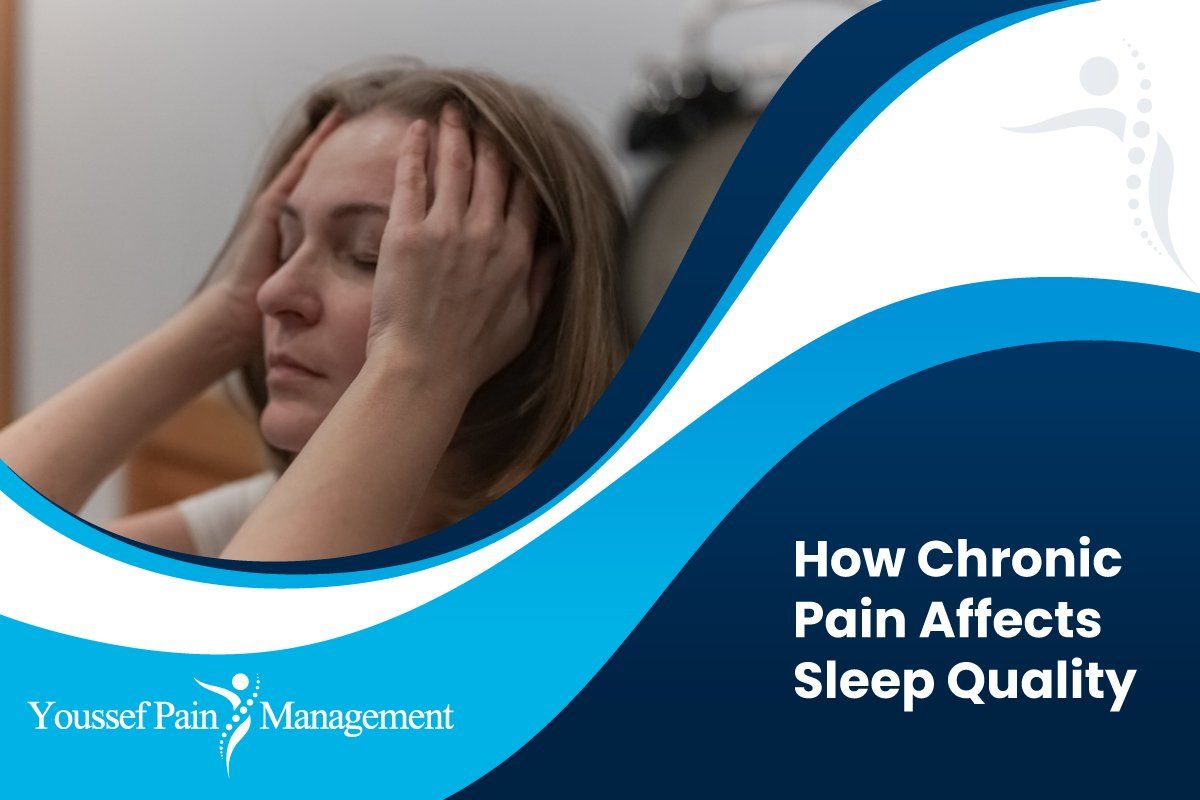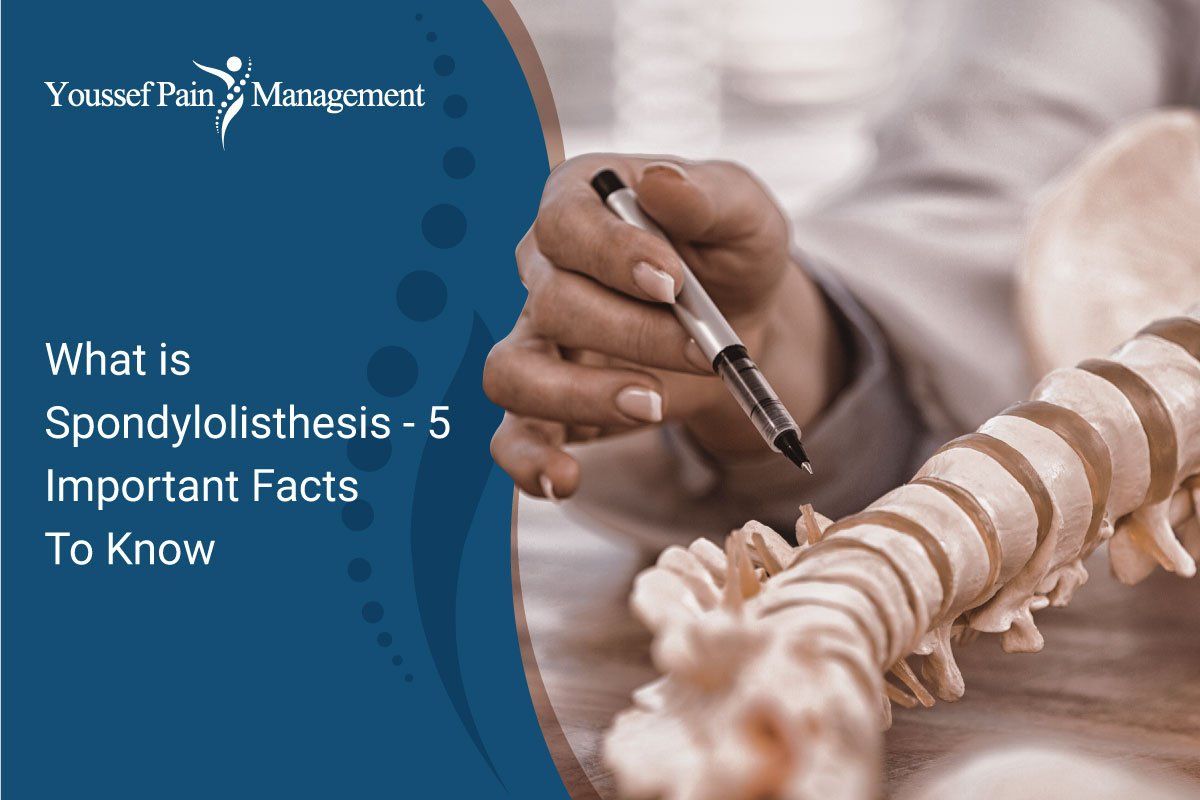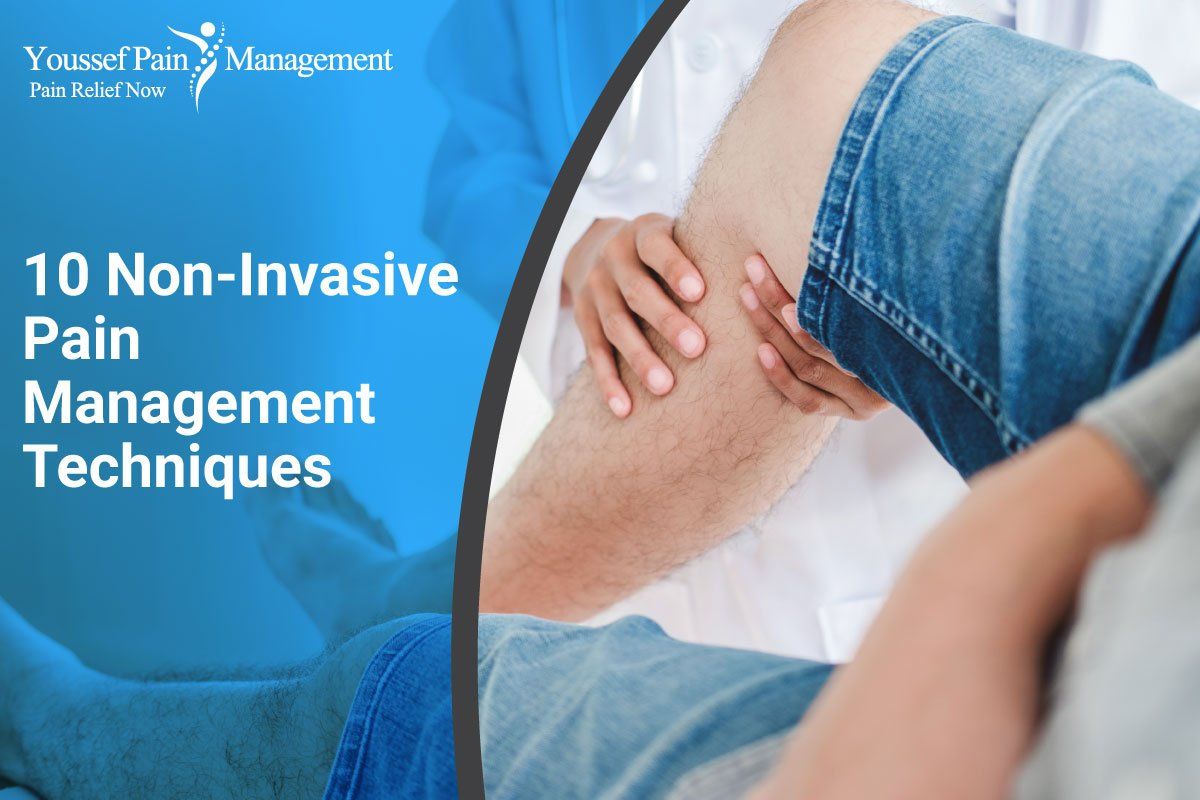How Chronic Pain Affects Sleep Quality

Can't sleep in pain? Don't worry. You're not alone.
Sleeping through the night can be challenging for people suffering from chronic pain. The
National Sleep Foundation estimates that two out of three people with chronic pain have difficulty sleeping. Pain is difficult enough to deal with during the day, whether from a sore back or a throbbing tooth. Yet, chronic pain that keeps you up all night can be downright exhausting.
Here, we learn how chronic pain and sleep affect each other and learn tips on how to sleep with chronic pain.
Understanding Sleep
Understanding chronic pain and sleep better will help us know how they affect physical activity and behavior. Having a good night's sleep is essential to everyone's daily routine. In fact, approximately
one-third of our time is devoted to this endeavor. After a long day, sleep helps the brain and body rest and recuperate. However, your brain and body
remain strangely active while you sleep.
Sleep research has refined that notion and found that it consists of carefully controlled and regulated stages. Getting enough sleep keeps our brains functioning properly. This includes proper connection among nerve cells to ensure efficient communication.
Sleep also
removes toxins from the brain when you're awake, like a house cleaner. Maintaining homeostasis requires uninterrupted sleep to survive and cope with the demands of everyday life.
Also, read
Brain Basics: Understanding Sleep.
Chronic Pain and Sleep
Over
20% of adults who experience pain report reduced sleep quality and quantity. Numerous studies link
chronic pain and poor sleep. Additionally, lack of sleep makes you tired the next day and can exacerbate chronic pain and worsen health problems.
The Prevalence of Sleep Problems in Chronic Pain
Most patients with chronic pain have
sleep problems, and at least
half of patients with insomnia have chronic pain. In most medical interventions, lack of sleep is accompanied by pain as a side effect, and vice versa.
Furthermore, chronic pain and sleep disturbances share a variety of physical and mental health
comorbidities, including obesity, type 2 diabetes, and depression.
The Impact of Pain on Sleep
The brain produces
dopamine, which is a
neurotransmitter. Dopamine signaling
disrupted or altered by pain could lead to prolonged periods of sleep loss and disrupted sleep continuity. A person with chronic pain may be more likely to wake up between sleep and be aware of their pain due to this phenomenon.
Besides pain, disturbed sleep is one of
fibromyalgia syndrome's most significant chronic symptoms. Many patients report difficulty falling asleep, frequent night waking, and unrefreshing sleep. The electroencephalograms of patients with FMS indicate frequent arousals,
extended stage 1 sleep, and diminished
slow-wave sleep, indicating a vigilant state of arousal during sleep.
FMS patients also report decreased activity levels, increased sleep during the day during depressive episodes, along with significantly more nighttime interruptions.
Patients with
chronic, recurrent headaches also suffer from sleep disturbances. Sleep deprivation is commonly associated with headaches, such as tension headaches and migraines. A headache-related sleep disturbance does not necessarily result in
reduced sleep time, as it does in fibromyalgia patients. Instead of the total amount of sleep per night, chronic headache pain affects the therapeutic effects of sleep. With different types of headaches, sleep disturbances can also vary.
Can Lack of Sleep Cause More Pain?
Even though pain affects sleep,
sleep also affects pain. Sleep disturbances can influence the way a person responds to pain. Lack of sleep promotes
daytime hyperalgesia, which leads to increased pain perception and more pain-related impairment in the absence of sleep.
Researchers have found that in
patients with fibromyalgia, sleep deprivation impairs pathways that normally inhibit pain. Moreover, sleep deprivation can cause systemic inflammation that can enhance pain. Despite the evidence, sleep deprivation is not a cause of pain. Instead, it may amplify pain associated with underlying causes.
Although sleep disorders are strongly associated with chronic pain and mood disorders, it is challenging to determine which has a more significant impact on the other.
Mental Health and Pain-Related Sleep Disturbances
Sleep disturbances caused by pain can complicate several psychiatric sequelae. Chronic pain associated with
sleep disturbances can lead to depression and anxiety later in life. In contrast, sleep disruptions due to pain are unlikely to cause other mental health issues, such as delusions, hallucinations, or mania.
No matter the exact molecular cause, psychiatric diagnoses of
anxiety or
depression can cause significant distress to a patient and may also change their behavior. It is crucial to address these issues in the clinical setting for patients to benefit from symptom relief and improved quality of life.
Reducing Pain Through Better Sleep
Getting a good night's sleep is one of the
most critical aspects of solving chronic pain since sleep and pain are cyclical in nature. Other pain treatments are limited in effectiveness until you have experienced a full night's sleep for at least six weeks. It is common for medications to be prescribed for a while when pain is present. Your need for sleep medicines will diminish as your pain decreases.
Sleeping Tips for Managing Pain at Night
To increase your chances of getting a good night's sleep, there are certain things you can do.
The Best Sleep Aid is Changing Behavior
Combating sleep problems requires avoiding behaviors that disrupt sleep and taking actions that prepare the body for sleep.
These are things that patients should avoid:
- Drinking caffeinated beverages, such as coffee, tea, and soda, six hours before bedtime.
- Alcohol and nicotine use
- Eating spicy or too much food close to bedtime makes the body less restful while digesting.
Conversely, activities that relieve pain and prepare the body for sleep can enhance sleep quality. These include:
- A three-to-five-minute stretch before bedtime can loosen joints and make it easier to assume a comfortable position in bed.
- Warm baths in the evening can relax muscles.
- Exercise vigorously early in the day to promote deep sleep at night.
- Drinking a warm, non-caffeinated beverage, such as milk, before bedtime can be helpful.
Further, it is helpful to sleep and wake up simultaneously every day. This reinforces a regular sleep cycle so the body can recognize and respond accordingly.
Sleeping Aids Can Help!
If chronic pain still keeps you up all night despite following these tips? Then you might benefit from sleeping aids. Here at Youssef Pain Management Inc, we understand how living with chronic pain can significantly affect your well-being, especially your sleep. We can help you achieve the rest you need with our sleeping aids prescribed by our board-certified pain doctors. We commit to providing you with our utmost care and attention regarding sleep via online telehealth appointments.
Become one of our happy and satisfied patients and live life to the fullest. To learn more or schedule an appointment, feel free to call 909-392-9480.
Allergy , Asthma and Sinus Center | All Rights Reserved.







